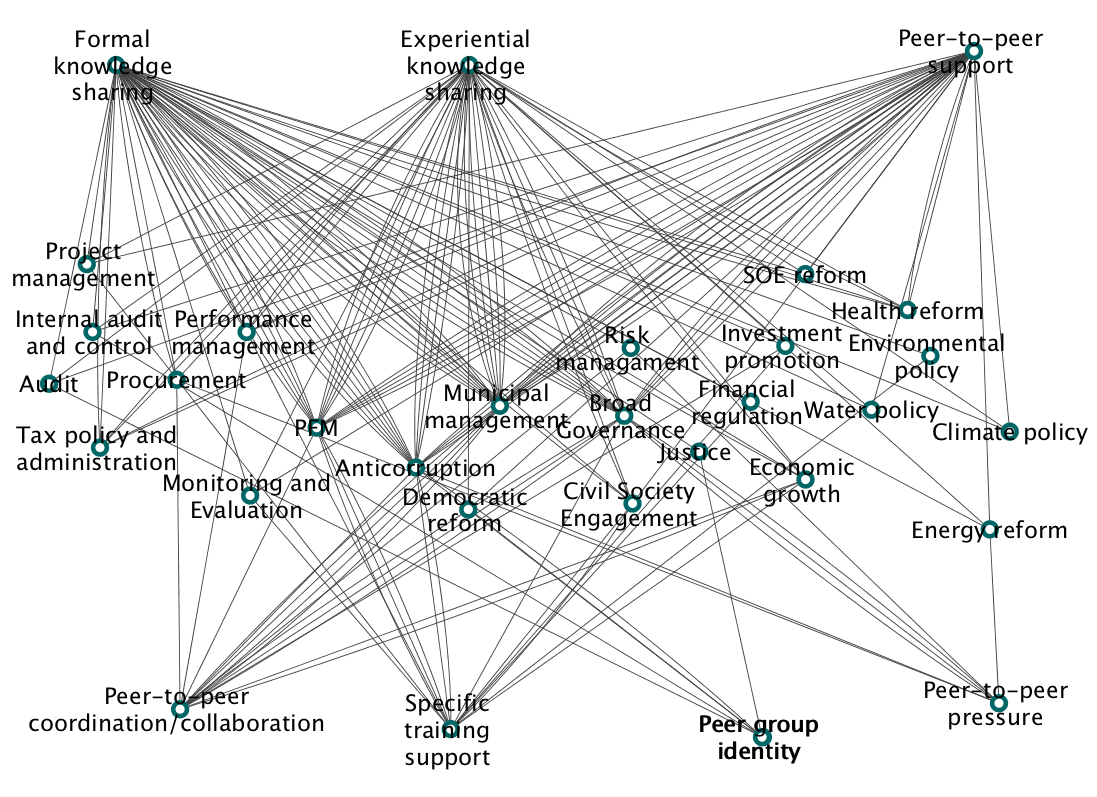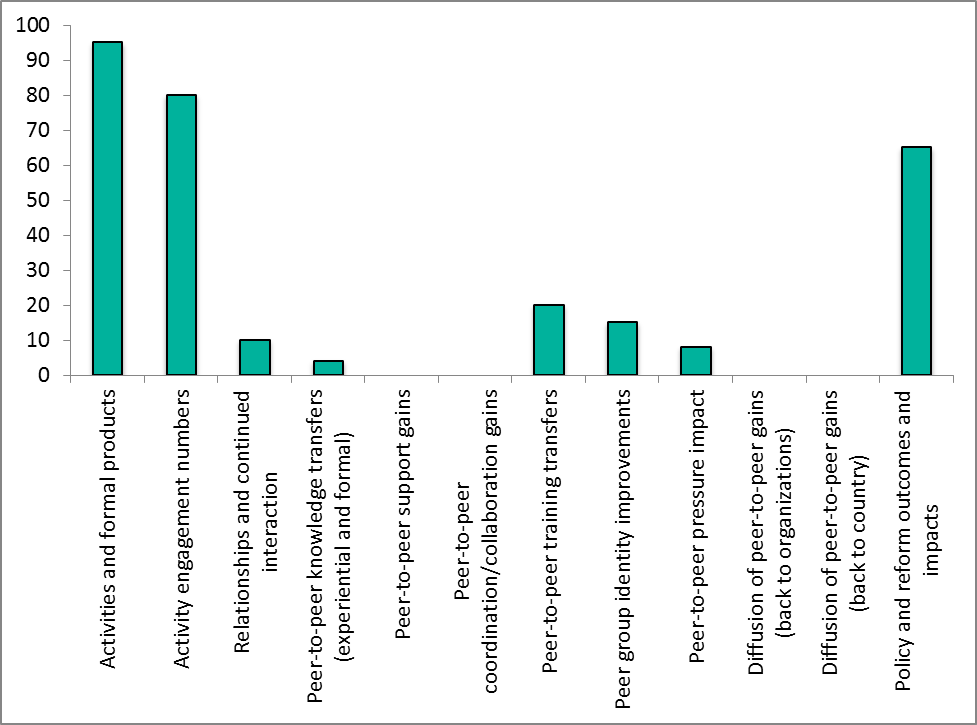Ideas for reflection
Peers can engage with each other in sustained ways but not learn from each other; or they can learn only easily observable things (with no transfer of latent knowledge of shared experience). This can undermine the value of a peer learning initiative, where even individual peers fail to learn from each other. There are a number of practical ideas to help ensure learning goals are met.
- The peer learning study showed that most peer learning engagements do not specify the details of what kind of learning is expected or hoped for. Examples of more successful peer learning are clear about the kinds of hoped-for peer sharing and learning (see the figure below).
- The most effective peer learning focuses on sharing of tacit knowledge between peers, which includes knowledge about how to do reforms (managing politics, and more). This is only one kind of learning goal, however (others include formal knowledge sharing, peer to peer support and collaboration, specific training support, and more, shown in the figure below, which captures the learning objectives of peer learning engagements in different reform areas)
| Peer engagement and learning goals, by reform type |
 |
- Using evidence in the peer learning process helps provoke real learning.
- Real and deep peer learning is often effectively produced through meaningful and inclusive conversations between the peers.
- Many peer learners note the value of combining more directed and specific training activities (sometimes tied to certification) with other peer learning activities. The training activities have stand-alone value for individuals (and their organisations) but could also provide opportunities for peer engagement and relationship building, and offer ways of framing more flexible follow-up peer learning connections.
- Reflection is a key part of improving the effectiveness of individual learning and of providing guidance on the overall impact of the peer learning community so that strategy and direction can be improved for the future. Research has shown that taking time away from the process of training and reallocating that for reflection on what has been learned significantly enhances peer learning.
- It is important to have a mechanism to evaluate the learning gains from peer learners; this is used to guide the learners about what is expected, to promote the kind of tools that will maximise the learning, and to ensure accountability in the process (for peer to peer and facilitator to host organisations).
- The common factors captured in evaluations of peer learning engagements do not focus on actual learning outcomes of individuals (see the figure below, which shows that evaluations tend to focus on initial engagements and overall outcomes and not the intermediate learning objectives). There are intermediate learning objectives that should be evaluated (as shown in the figure).
- It is useful to communicate learning objectives with host organisations before starting a peer learning initiative, and to report on learning gains as the process progresses.
| Impact of peer learning according to current evaluations |
 |
Related Publications
